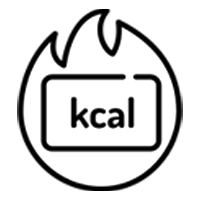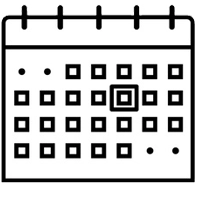Show summary Hide summary
How many calories do we burn playing soccer?

Everything you need to know about soccer
Wondering how many calories you burn playing soccer for 30 minutes or 1 hour? Enter your details and get an estimate with our calculator.
A few examples of energy expenditure depending on weight and activity time.
Use the table below to see how many calories you lose playing soccer!
Soccer
Training session
Expenditure in Kilocalories
| Weight | 15 minutes | 30 minutes | 1 hour |
|---|---|---|---|
| 40 kg | 84 | 168 | 336 |
| 50 kg | 105 | 210 | 420 |
| 60 kg | 126 | 252 | 504 |
| 70 kg | 147 | 294 | 588 |
| 80 kg | 168 | 336 | 672 |
| 90 kg | 189 | 378 | 756 |
Soccer
Competition
Expenditure in Kilocalories
| Weight | 15 minutes | 30 minutes | 1 hour |
|---|---|---|---|
| 40 kg | 95 | 189 | 378 |
| 50 kg | 118 | 236 | 473 |
| 60 kg | 142 | 284 | 567 |
| 70 kg | 165 | 331 | 662 |
| 80 kg | 189 | 378 | 756 |
| 90 kg | 213 | 425 | 851 |
See detailed calculations and metabolic equivalent for soccer
Everything you need to know about soccer
FIND OUT MORE ABOUT PLAYING SOCCER
Soccer is one of the most popular sports in the world, whether it’s in the playground for the youngest, on the Copacabana beach where it has become a Brazilian institution, or in local clubs. Soccer is everywhere, although it is less popular in the United States, where the American version is preferred.
This sport, like other team sports played with a ball, allows you to expend a lot of energy, since when you train, you spend 8 times more than your basal metabolic rate (resting metabolic rate).
Some benefits of playing soccer:
- Improved physical fitness: Soccer is a sport that involves every muscle in the body, improving cardiorespiratory endurance, muscular strength, speed, agility and coordination. Players are constantly on the move, sprinting, changing direction and jumping, all of which contribute to overall fitness.
- Developing motor skills: Soccer requires motor skills such as foot, hand and eye coordination, as well as the ability to control the ball, dribble, pass and shoot. Regular soccer practice helps improve these skills and fine-tune motor coordination.
- Muscular strengthening: The repetitive movements involved in soccer call on the muscles of the legs, thighs, buttocks, abdomen and upper body. As a result, players develop overall muscular strength, which contributes to better posture, stability and injury prevention.
- Improved stamina: Soccer matches require good stamina, as they usually last 90 minutes or more. Players must be able to maintain a constant effort throughout the match, sprinting, running and recovering quickly. Regular soccer practice improves cardiovascular and respiratory endurance.
- Learning discipline and team spirit: Soccer is a team sport that requires discipline and team spirit. Players must respect the rules of the game, work cooperatively with their teammates, communicate effectively and make quick decisions on the pitch. These skills are transferable to other aspects of daily and professional life.
- Development of cognitive skills: Soccer requires rapid analysis of the situation on the pitch, tactical decision-making, anticipation of the movements of opponents and team-mates, and real-time problem-solving. Playing soccer therefore improves cognitive abilities such as concentration, anticipation and decision-making.
- Mental health promotion: Soccer can contribute to good mental health by promoting socialization, reducing stress, improving self-esteem and fostering a sense of belonging to a group. It also helps develop stress management, failure management and resilience skills.
- Fun and entertainment: Soccer is first and foremost an entertaining sport that gives players pleasure. It’s a great way to relax, have fun and spend quality time with teammates and friends. Whether playing on a competitive team, taking part in friendly matches or simply training, soccer offers a rewarding and stimulating experience.
In conclusion, soccer is much more than just a sport. It fosters physical, technical and mental development, while offering opportunities for socialization and entertainment. Whether you’re a beginner or an experienced player, soccer is an exciting activity that allows you to stay active, have fun and experience unforgettable moments on the pitch.
How to calculate the number of calories burned playing soccer
The result displayed is expressed in Kcal and is calculated from the MET (Metabolic Equivalent of Task). The MET for each activity is the result of statistical data and cannot therefore be interpreted as an exact calculation, but rather as an estimate taking into account the MET value and the ratio between the time spent on an activity and the weight of the individual.
For example: the MET value for soccer is 8 for moderate exercise and 9 for intense exercise. This means that a person practicing moderate soccer consumes 8 times more energy than at rest during a soccer session.
MET values for different levels of soccer intensity
- Moderate-intensity soccer: MET = 8
- High-intensity soccer: MET = 9
Discover the detailed formula to calculate your daily energy expenditure while playing soccer
Consumption in Kcal per minute = (MET*3.5*Weight in kilos)/200
This means that for a 70-kilo person PLAYING moderate soccer for 30 minutes:
Consumption in Kcal per minute = (8*3.5*70)/200 = 9.8 Kcal/min
So for 30 minutes = 9.8*30 = 294 kcal for 30 minutes
All sports in detail!



















































